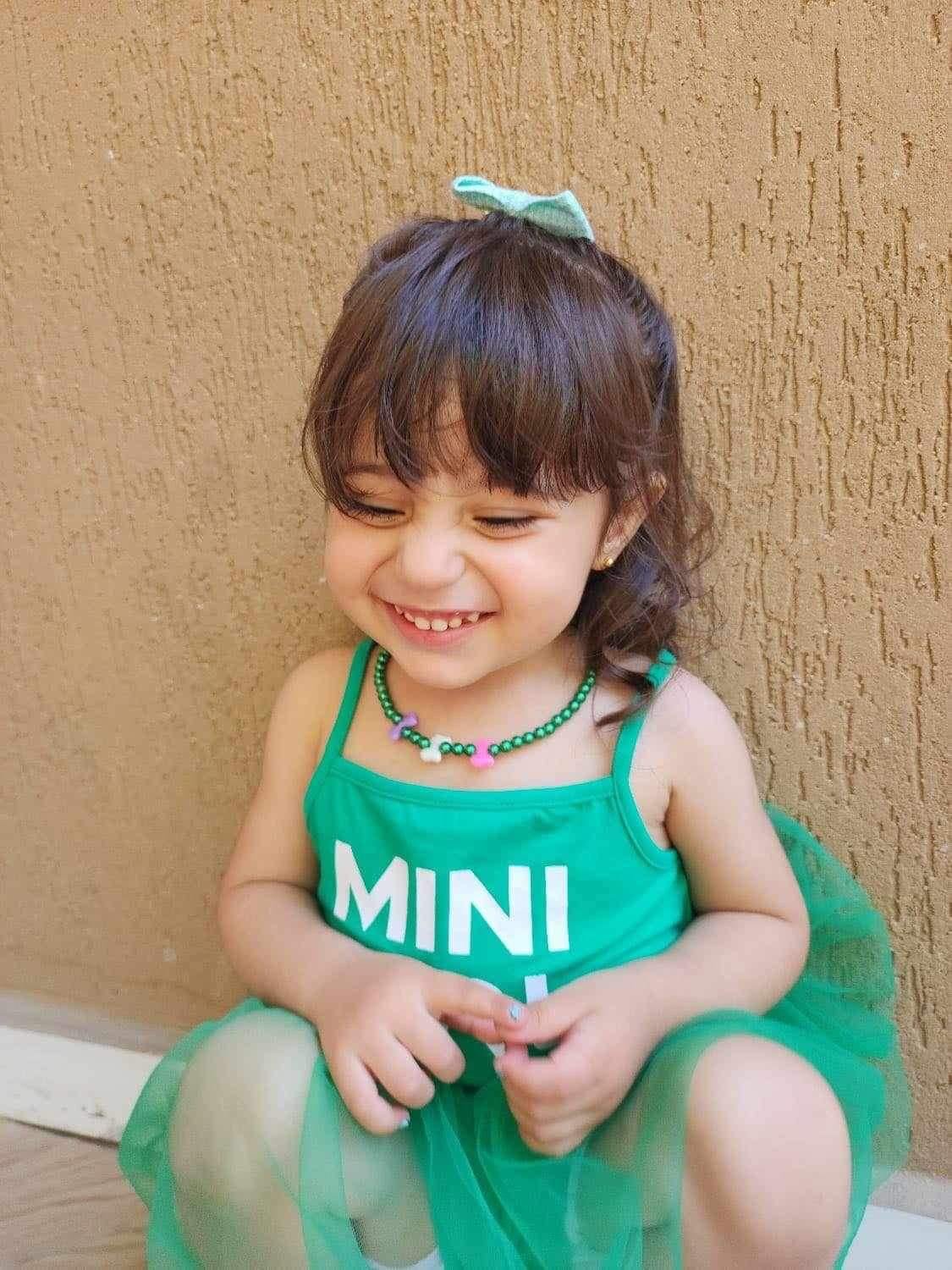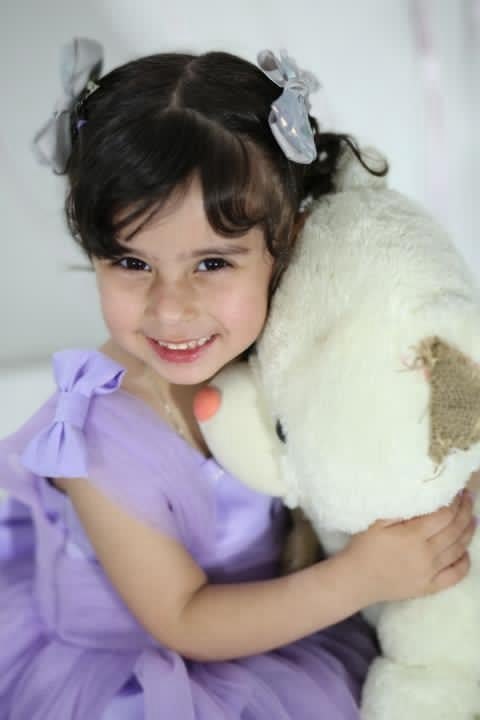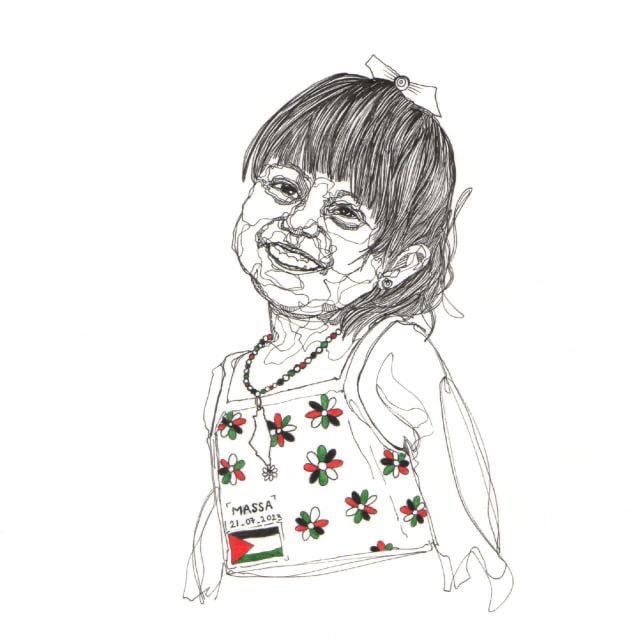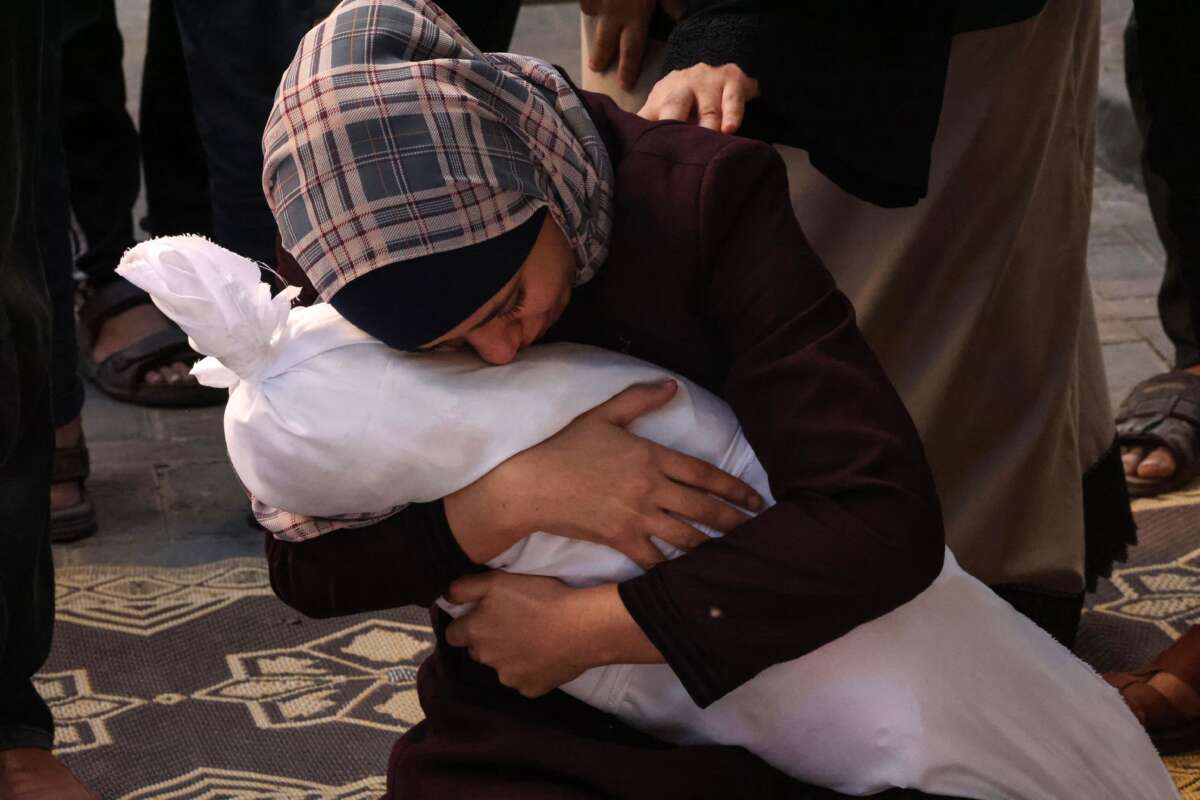Part of the Series
Struggle and Solidarity: Writing Toward Palestinian Liberation
Ever since 2002, when I was 6 years old, I have been an orphan. But 20 years later, Israel’s war in Gaza made me an orphan for the second time.
Before this war, my life was great and full of love. Even though I lost my mother when I was young, my grandmother raised my sister, my brother and me. I had a dream of working in diplomacy, to fight for the Palestinian cause. When the war began, I was working as a civilian journalist at the Community Media Center, where I covered social issues — specifically violence toward women and children.
I learned to work hard from my older sister, Samar. She dreamed of getting a good job to be able to pay my university tuition. Once, she sold a ring she had inherited from my mother to pay for me to go to school. She gave me everything she had with the hope that I would have a good life.
But my life in Gaza changed dramatically last year, when Israel began its genocide. Early on in the war, a photo spread on the internet of a woman in Gaza holding a small body wrapped in a shroud. Even among the many images of the war, that photo, heavy with grief, became famous. It accompanied articles about the number of children killed by Israel. It even made its way onto a mural in Dublin, Ireland; an artist painted a version of the photo, but replaced the shroud with a Palestinian flag.
I will tell you the story of that photo. The woman in the picture is me, and the person I was holding between my arms is my 2-year-old niece, Masa.

Masa came to this world on a special day — August 2, 2021 — the same date of her father’s birthday and the date of her parents’ anniversary.
Our Masa had many nicknames. Her father used to call her Diamond, because of her pure beauty. We used to call her the fruit of the life. Masa was full of energy. She loved to swim, draw and walk on the beach while eating her favorite ice cream.
Masa was the daughter of my sister, Samar, who was 30 when the war began. Samar was so beautiful, with big blue eyes. She was working as a teacher when she married her husband, Louay. He had so much love for her. He used to see her as the soul of their home.
Louay was a doctor — he was very generous, and successful in his field. In 2022, he started his own business, running two medical laboratories. He was supposed to celebrate the anniversary of his business on October 15, but then the war started and destroyed everything.
In 2018, after years of trying, Samar and Louay had their first daughter, Lina. Lina’s birth made us really understand the meaning of family. We prepared so much for her to enter the world, and took great care in designing her room, which was decorated all in pink. When she was born, we distributed sweets in the streets. Lina was an endless light in our life. When I saw her face, I forgot all of my sadness. Lina had been very excited to start kindergarten two weeks before the war began. She had gotten a backpack and school books and a water bottle from the library in preparation for school to start. She brought me a water bottle, too. That was my last present from her. I still have it.

Masa, Lina, Louay and Samar were all killed on October 21, 2023, along with their neighbors and other members of their family. That night, Lina called me and asked me not to be afraid. She told me that the rockets were just fireworks, and she asked me to visit and bring her favorite chocolate, Kinder Eggs. But around 11 pm, their home was bombed in the dark of the night.
They might have had a chance to be rescued, but the emergency services couldn’t reach their area because of the violent bombing in Rafah City, where they lived. The rescue workers finally made it to them the next day at 9 am. After a long search around the house, they found Masa’s small body on the fourth floor of the neighbor’s building.
Shortly after she was found, I held her, a moment captured by a photographer that everyone around the world would soon see.
Masa is the only one whom I could hug for the last time, because none of the others had bodies left for me to hold. I gave her a huge hug, as if it was for all of the family.
I whispered in her ears, “My darling, you’re now in the sky, by the moon which you used to love. Now you are at the heavens next to your grandmothers, whom you always asked about. Sleep peacefully now, my darling.”
I left Gaza six months later, on April 7, 2024. On my way to the border, I passed my sister’s destroyed house. All of the painful memories woke up again in my heart and mind. I arrived the Palestinian side of the border at 7:45 am, and made it to the gate to Egypt by 11:30 am. I had never before thought about leaving Gaza. All I had imagined was visiting Saudi Arabia to do the pilgrimage to Mecca. I had never dreamed of visiting other countries, as other young people dream.
I waited at the Egyptian gate from 11:30 am until 9:30 pm. These hours of waiting were so hard as I was thinking about the other members of my family whom I had left behind. I was so scared because at that point in the war, Israel had been advertising its plans to invade Rafah, an invasion which would come less than a month after I left.
Finally, I made it onto a bus to Egypt, where I arrived at 4 am the next day. When I entered Cairo I saw the city lights, which we had been deprived of for a year. When I saw how people in Egypt live normally, I had such a strong sense of nostalgia for my lovely Gaza.

Now, it has been more than a year since Masa was killed. I’m trying to honor Masa and her family by helping people. I’ve made many fundraising campaigns for people in Gaza, and I’ve distributed water and food. I’ve also helped many Palestinian families here in Egypt. I did all of that for the souls of Masa, Lina, Samar and Louay.
I write these lines as a message from Masa to the world. I can imagine her saying:
“I am Masa. I want you to look at me and remember me. Remember my face. Remember my sister, Lina, age 6. Remember my mother, Samar. Remember my father, Dr. Louay. Remember the three rockets that killed us together. Promise to never forget me.”
Media that fights fascism
Truthout is funded almost entirely by readers — that’s why we can speak truth to power and cut against the mainstream narrative. But independent journalists at Truthout face mounting political repression under Trump.
We rely on your support to survive McCarthyist censorship. Please make a tax-deductible one-time or monthly donation.
